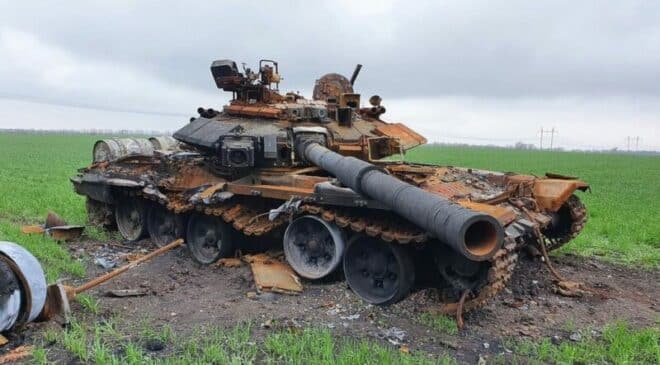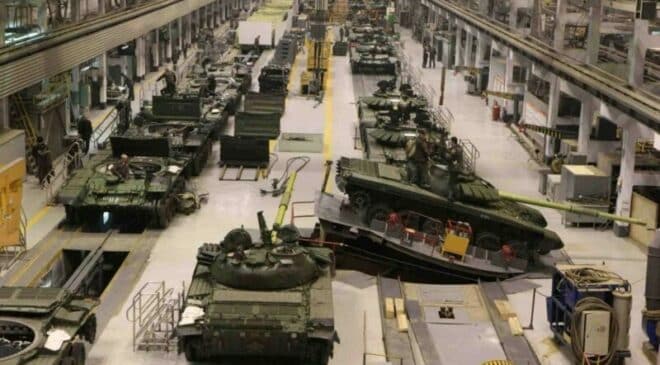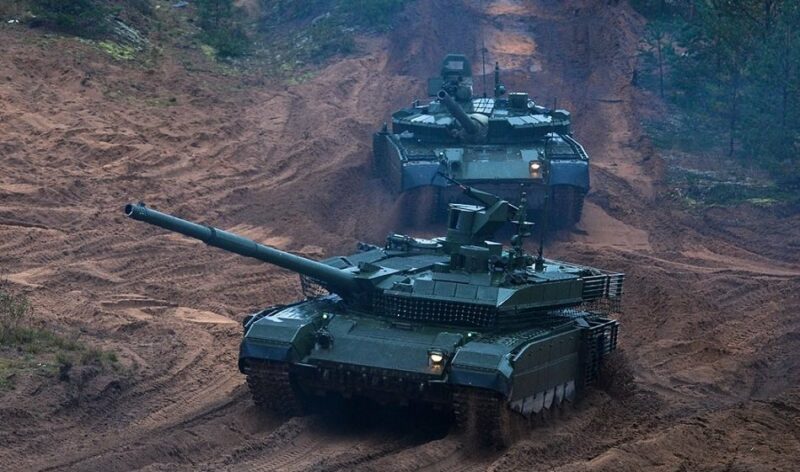Supported by major industrial and societal efforts, the Russian military threat is in full transformation, without the Western Europeans adapting to this evolution.
Ahead of the Russian offensive against Ukraine in February 2022, the vast majority of analysts considered that the Russian armed forces had formidable military power, at least on par with the NATO armies deployed in Europe. . In fact, it was reasonable to consider that Ukraine and its armed forces, having almost 10 times less budgetary means each year than their adversaries, could not resist an offensive led by Moscow for very long, except to carry out an in-depth reflection on the reality of the ground and Ukrainian defensive capacities.
Anyway, after a few weeks of fighting it soon became clear that Russian military power was far less than estimated, while the Ukrainian resistance and the Western mobilization turned out to be much more effective than anticipated. Little by little, while the Russian armies were being beaten by Ukrainian fighters as determined as they were inventive, this feeling of the omnipotence of the Russian armies was transformed into a perception of a lack of efficiency concerning both command and doctrine and even the Russian equipment.
Today, while the Russian forces lost almost 65% of their pre-war tank fleet, but also 50% of armored combat vehicles, 25% of its helicopters and 15% of its combat planes, not to mention the very symbolic Moskva cruiser, as well as nearly 200.000 combatants killed, wounded or missing, the Russian armies are not considered than like the ghost of what they were two years ago.
European perception of a Russian military threat under control
Faced with this observation, if Eastern and Northern Europeans, probably driven by the Polish dynamic, continue to modernize and increase their defensive capabilities, particularly in the field of high-intensity warfare, Western Europeans , France, Germany, Italy and the United Kingdom in the lead, seem for their part to consider in their military programming that this Russian threat is no longer major, at least in the short term.
This is why none of these countries plans to increase their forces dedicated to high-intensity engagement, whereas the existing one is very limited due to successive developments on the basis of dissymmetrical engagement as in Iraq. , Afghanistan or Mali.

Thus, these 4 powers, although representing a combined GDP of almost $12,500 billion, i.e. 75% of that of the entire European Union, will together have less than 1000 combat tanks in 2030, i.e. less than Poland and its GDP of 700 billion dollars, but also less than 300 155 mm tubes, 700 combat aircraft and less than 250 anti-tank helicopters.
Indeed, by observing the new French, British, German and Italian military programming, it appears that these countries do not envisage that Russia could represent a significant threat in the short term, because of the very heavy losses recorded in Ukraine, and this regardless of the outcome of the conflict.
Overly long-range European programs
Consequently, the budgetary efforts that would have been necessary to strengthen the component dedicated to high intensity have been postponed beyond 2030, or even 2035, so as to free up the appropriations necessary to modernize other components, such as deterrence, anti-ballistic protection, intelligence or power projection. However, several objective elements tend to call into question this perception, whether reasoned or argumentative, at the heart of European plans.
Firstly, it is essential to assess the reconstruction capabilities of the Russian armed forces beyond the war in Ukraine, as well as the thresholds and constraints they face. And in fact, if the term "war economy" is very fashionable in Europe today, to the point of being often overused, even devoid of its substance, it has been methodically applied by Russia since the beginning of the conflict. in Ukraine.
Thus, from an open economy relatively similar to the Western market economy, Russia evolved towards a much more controlled economy, mainly oriented towards the export of raw materials and hydrocarbons, as well as the production of armaments, while making many concessions to public opinion to avoid too much trauma, in particular by replacing Western products hitherto very present with Chinese manufactured products.
The reorganization of the Russian defense industry
Today, the Russian economy is profoundly reorganized to meet these three objectives, without any movement of mood having agitated the population.


75% of this article remains to read,
Subscribe to access it!
The Classic subscriptions provide access to
articles in their full version, and without advertising,
from 6,90 €.
Newsletter subscription
Register for the Meta-Defense Newsletter to receive the
latest fashion articles daily or weekly


pity to ignore Vodka (military scourge) as well as the catastrophic age pyramid for Russia. Piling up low quality weaponry at best will not suffice if there are no human resources to put into it.
We could also address the disaster of the hazing of incoming classes in the army which encourages even more young people to flee the country.
For the Chinese part, I don't understand what can lead you to think that the Chinese make good stuff by themselves. For 50 years it has been industrial looting and theft on a large scale to manufacture their equipment. We see it with all their mediocre copies of F35s, armored vehicles or even ships.
Finally, Russia is embarked on a sort of headlong rush that only leads to the road bank.
The point where I completely agree with you is the vassalization of Russia by China: we are going straight to it and it will be even less funny for the Russian people.
The main argument to support the thesis of a decrease in Russian danger is not so much material or even human attrition as a more fundamental fact: after 3 days of war, Putin had lost the war, and that will deter him to start over.
None of its objectives have been achieved, indeed: it is exactly the opposite that has happened. Ukraine not only resists, but firmly integrates into the Western bloc; NATO is expanding; the West succeeded in mobilizing widely against Russian aggression; Russia, instead of increasing its power, is becoming a client country of China. And none of this is reversible.
The second argument, just as decisive, is that, contrary to what is said with more romanticism than lucidity, Ukraine does not stand for the freedom of Europe, which was and still is not threatened. Putin's Russia never entertained the idea of attacking NATO. He thought he would be able to decapitate Ukraine in 3 days, not attack the economically and militarily most powerful bloc in the world, with all the panoply of nuclear deterrence. And he thinks about it all the less now that he has seen what credit he could give to the capabilities of his army.
The only danger that Russia really represents is the scenario where it suffers too humiliating a defeat and decides to use a nuclear weapon with all the risks of escalation that entails. But building tanks won't change that.
On the other hand, a China backed by Russia is much more threatening than it was before (this is in my opinion the biggest error of judgment of the West). However, there again, the confrontation would not take place with blows of tanks on the plains of Poland.
[…] […]
[…] April 19, 2023 3 […]
[…] weakened by two decades of critical underinvestment, despite the fact that the potential for rebuilding Russian forces, once the conflict with Ukraine is over, appears far superior and rapid to the […]
[…] alternatives to the Western components used in its production, to produce, each month, around fifty tracked armored vehicles, including the T90M, T)80BVM and T72B3M tanks, as well as infantry fighting vehicles […]